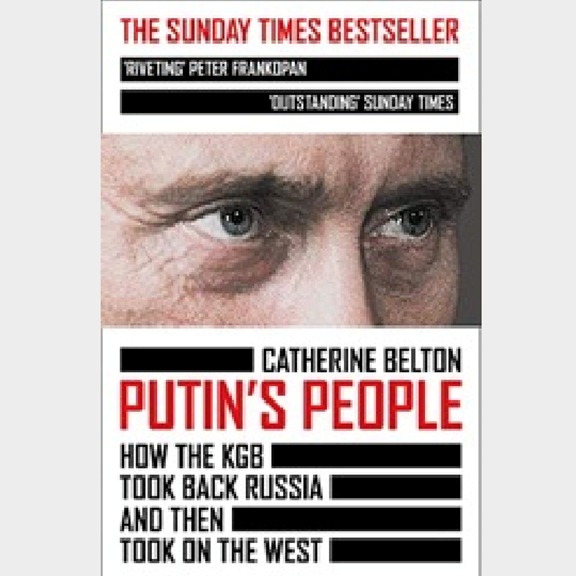Catherine BELTON, Putin’s People: how the KGB took back Russia and then took on the West (Harper Collins 2020)
Monday, 30 May 2022
Catherine BELTON, Putin’s People: how the KGB took back Russia and then took on the West (Harper Collins 2020)
There’s an old joke about the Englishman, the Frenchman and the German who were asked to write about elephants. The Englishman went on a three year safari and wrote Elephants I Have Shot. The Frenchman spent an afternoon at the zoo composed a stimulating essay, L’ Elephant et l’Amour. After ten solid years a Heidelberg publisher produced seven volumes, The Elephant: a preliminary study.
Ms Belton is a highly skilled journalist, who for six years was Moscow's correspondent for the Financial Times and now writes for Reuters. She has combined the Englishman’s pragmatism with something of the German’s output. At 500 pages this book is not light reading.
It picks its way through the murky byways of post-Soviet Russian politics. It tells how former KGB officers have operated the levers of political and financial power. Readers will be well-advised to keep a careful note of who’s who; it is easy to get lost in a labyrinth of unfamiliar names. There is heavy dependence upon published sources and private interviews — archives will not be open in the forseeable future, if they ever are. A considered academic or forensic view is therefore not easy to reach. The author is in no way to be blamed for that.
The book has (unsurprisingly) attracted several lawsuits but many more plaudits. Yet the narrative approach reduces its impact. The author is, for instance, well aware of the dangers of Russia’s romantic understanding of its imperial destiny — early on she quotes Mr Putin as publicly deploring the Bolsheviks’ decision to set up separate republics within the Tsarist empire because it flew in the face of what he thinks is History. (The republics themselves, of course, have a vastly different perspective.) The general reader might have appreciated more to be made of this.
It is an important contribution to current geopolitics. Readers might like also to look at BH Sumner’s 1944 classic Survey of Russian History, which is digestible, massively learned and strong on the sort of analysis that puts Mr Putin and his colleagues into a longer and even clearer context — one that is just as alarming.
Ophicleide


